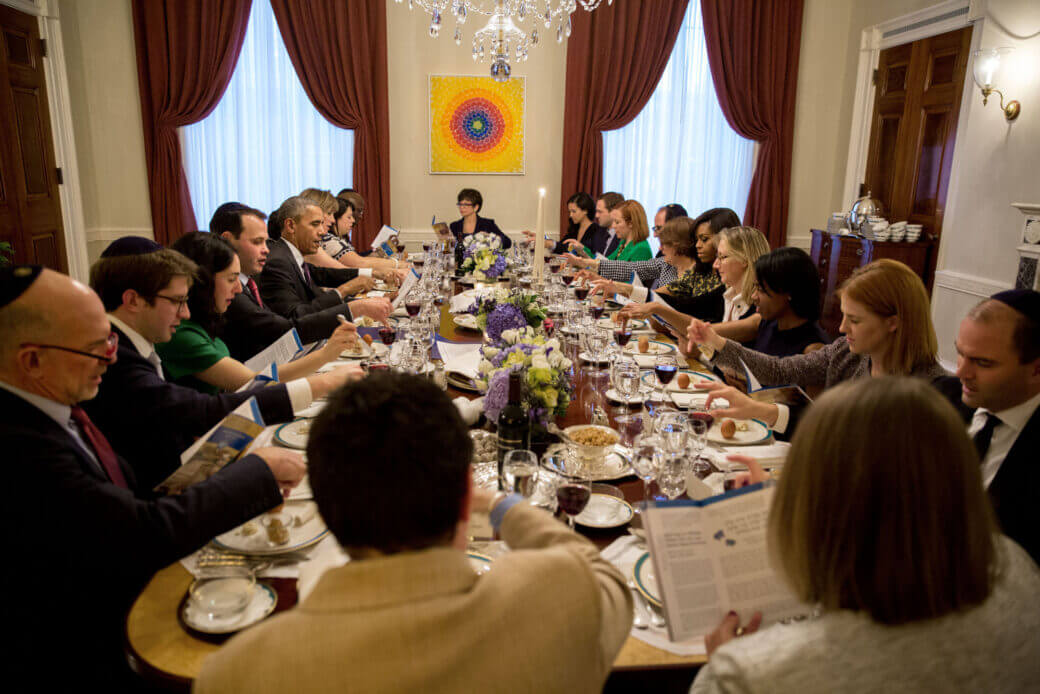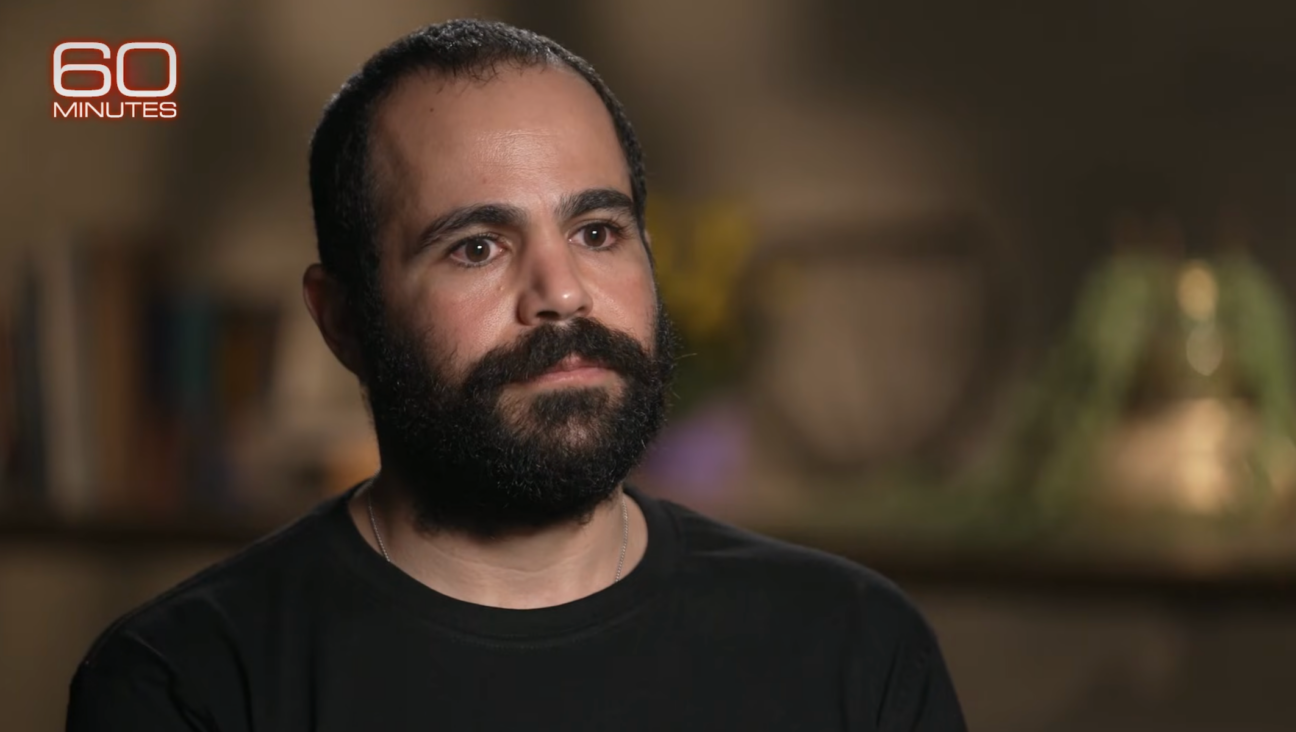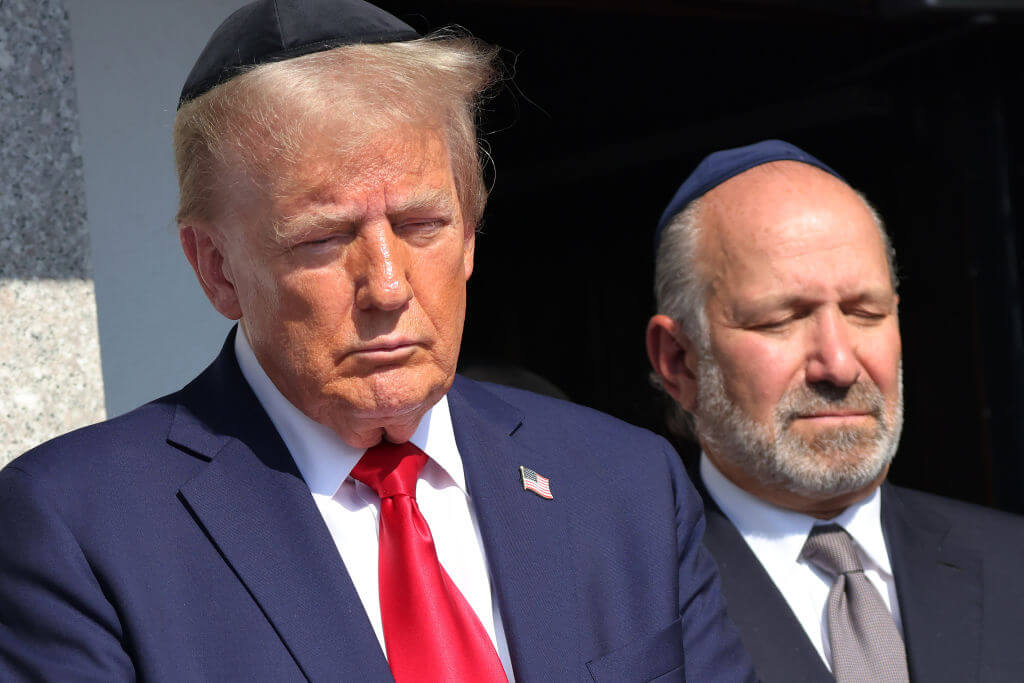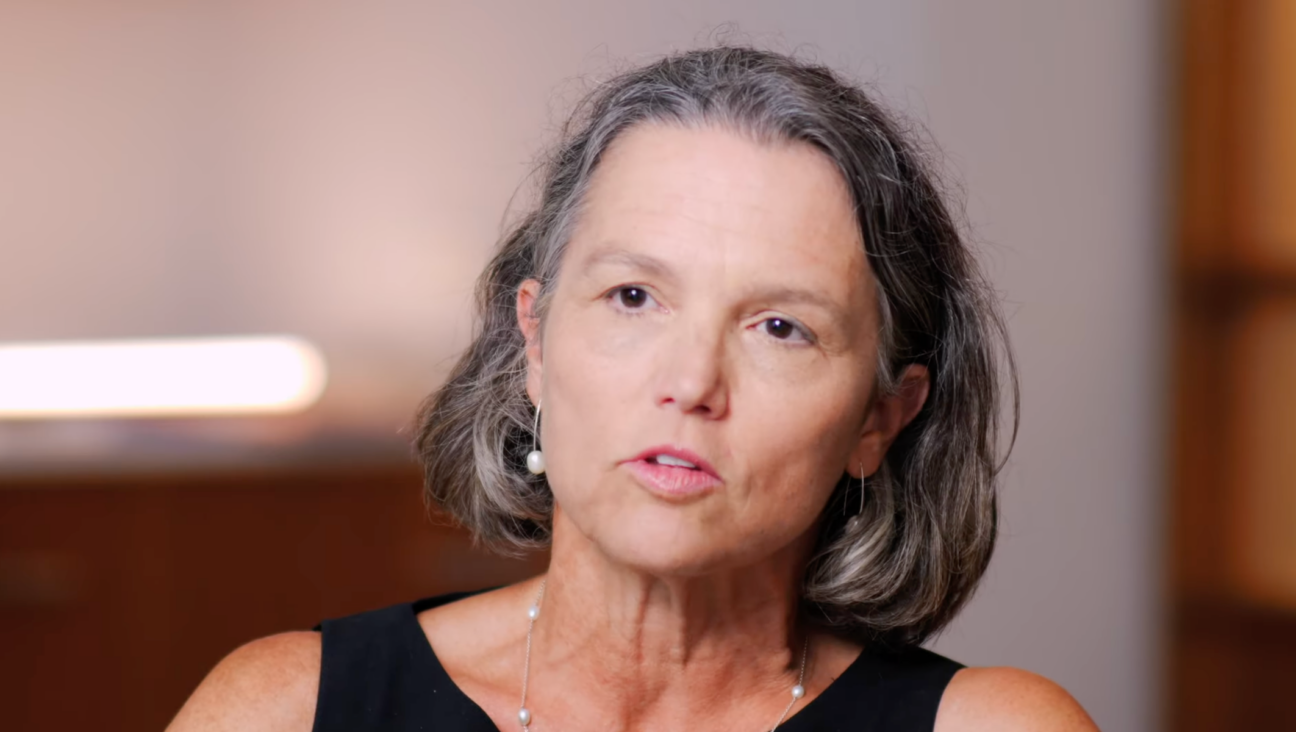‘Not One Israeli’ in Future Palestine, Mahmoud Abbas Vows

Mahmoud Abbas fired a warning shot across the bow of anyone who thought the peace talks would be quick and easy. The Palestinian leader laid out hardline positions on borders, settlers, and Jerusalem. Image by getty images
Palestinian President Mahmoud Abbas laid out his vision on Monday for the final status of Israeli-Palestinian relations ahead of peace talks due to resume in Washington for the first time in nearly three years.
Abbas said that no Israeli settlers or border forces could remain in a future Palestinian state and that Palestinians deem illegal all Jewish settlement building within the land occupied in the 1967 Middle East war.
The forceful statements appeared to challenge mediator U.S. Secretary of State John Kerry’s hopes that the terms of the talks, scheduled to begin Monday night over dinner, be kept secret.
“In a final solution, we would not see the presence of a single Israeli – civilian or soldier – on our lands,” Abbas said in a briefing to mostly Egyptian journalists.
“An international, multinational presence like in Sinai, Lebanon and Syria – we are with that,” he said, referring to United Nations peacekeeping operations in those places.
He was in Cairo to meet with Egypt’s interim president Adli Mansour nearly a month after the country’s armed forces ousted his elected predecessor, Mohamed Mursi. He also discussed with senior Egyptian intelligence figures relations between the two governments and the easing of movement of goods and people between Egypt and the Gaza Strip.
Israel has previously said it wants to maintain a military presence in the occupied West Bank at the border with Jordan to prevent any influx of weapons that could be used against it.
But Abbas said he stood by understandings he said he reached with Israeli Prime Minister Ehud Olmert, predecessor to more right-wing leader Benjamin Netanyahu, that NATO forces could deploy there “as a security guarantee to us and them.”
The United States is seeking to broker an agreement on a two-state solution in which Israel would exist peacefully alongside a new Palestinian state created in the West Bank and the Gaza Strip, lands occupied by the Israelis since a 1967 war.
The talks will be conducted by senior aides to Netanyahu – Israel’s Justice Minister Tzipi Livni and Yitzhak Molcho – and to Abbas – represented by Saeb Erekat and Mohammed Ishtyeh.
On the future of Jewish settlements on the West Bank and the status of Jerusalem – among the most contentious issues facing the two sides – Abbas signalled no softening of his stance.
“We’ve already made all the necessary concessions,” he said.
“East Jerusalem is the capital of the state of Palestine … if there were and must be some kind of small exchange (of land) equal in size and value, we are ready to discuss this – no more, no less,” he said.
TERMS OF REFERENCE
Before agreeing to return to talks last week, Palestinian officials were adamant that negotiations should have three main prerequisites: the release of veteran Arab prisoners in Israeli jails, a full settlement freeze and an acknowledgment of the 1967 lines as the basis for future borders.
Israel has publicly granted only one of those demands when its cabinet on Sunday voted by a slim margin to approved the phased release of 104 Arab prisoners.
Abbas said on Monday that he refused to endorse any half-measure whereby he would let Israel freeze construction in smaller, more far-flung settlements but allow it to build in the larger and more populous “blocs” closer to the 1967 lines.
“There was a request, ‘We’ll only build here, what do you think?’ If I agreed, I would legitimize all the rest (of the settlements). I said no. I said out loud and in writing that, to us, settlements in their entirety are illegitimate.”
Asked if the Americans may try to get Israel to agree to a de facto settlement freeze, the president made a broad smile and declined to answer: “I don’t know.”
Palestinian sources say officials remain uncomfortable with the lack of a firm Israeli commitment, publicly or behind closed doors, to meet their remaining expectations.
They say that in talks in the coming days, the Americans hope to satisfy Palestinian objections by issuing a statement declaring the 1967 lines the basis for negotiations, and the United States will attempt to compel the Israelis to endorse their note.
Israeli officials have in public repeatedly refused to accede to the Palestinian demands, calling them preconditions on issues that must be agreed at the end, not the start, of talks.
Senior aide to the president Tayyeb Abdul Rahim, accompanying Abbas, told Reuters, “We’re between too opinions: should Israel agree to stop building settlements, or should they agree to a state on the 1967 borders to go back to talks.
“What’s stronger? (The second) means that all settlements are illegitimate. America is convinced of our point of view … Israel has not yet agreed to a state on the 1967 lines, but it will go to the talks on that basis.”
The Forward is free to read, but it isn’t free to produce

I hope you appreciated this article. Before you go, I’d like to ask you to please support the Forward.
At a time when other newsrooms are closing or cutting back, the Forward has removed its paywall and invested additional resources to report on the ground from Israel and around the U.S. on the impact of the war, rising antisemitism and polarized discourse.
Readers like you make it all possible. We’ve started our Passover Fundraising Drive, and we need 1,800 readers like you to step up to support the Forward by April 21. Members of the Forward board are even matching the first 1,000 gifts, up to $70,000.
This is a great time to support independent Jewish journalism, because every dollar goes twice as far.
— Rachel Fishman Feddersen, Publisher and CEO
2X match on all Passover gifts!
Most Popular
- 1

Film & TV What Gal Gadot has said about the Israeli-Palestinian conflict
- 2

News A Jewish Republican and Muslim Democrat are suddenly in a tight race for a special seat in Congress
- 3

Fast Forward The NCAA men’s Final Four has 3 Jewish coaches
- 4

Culture How two Jewish names — Kohen and Mira — are dividing red and blue states
In Case You Missed It
-

Books The White House Seder started in a Pennsylvania basement. Its legacy lives on.
-

Fast Forward The NCAA men’s Final Four has 3 Jewish coaches
-

Fast Forward Yarden Bibas says ‘I am here because of Trump’ and pleads with him to stop the Gaza war
-

Fast Forward Trump’s plan to enlist Elon Musk began at Lubavitcher Rebbe’s grave
-
Shop the Forward Store
100% of profits support our journalism
Republish This Story
Please read before republishing
We’re happy to make this story available to republish for free, unless it originated with JTA, Haaretz or another publication (as indicated on the article) and as long as you follow our guidelines.
You must comply with the following:
- Credit the Forward
- Retain our pixel
- Preserve our canonical link in Google search
- Add a noindex tag in Google search
See our full guidelines for more information, and this guide for detail about canonical URLs.
To republish, copy the HTML by clicking on the yellow button to the right; it includes our tracking pixel, all paragraph styles and hyperlinks, the author byline and credit to the Forward. It does not include images; to avoid copyright violations, you must add them manually, following our guidelines. Please email us at [email protected], subject line “republish,” with any questions or to let us know what stories you’re picking up.












